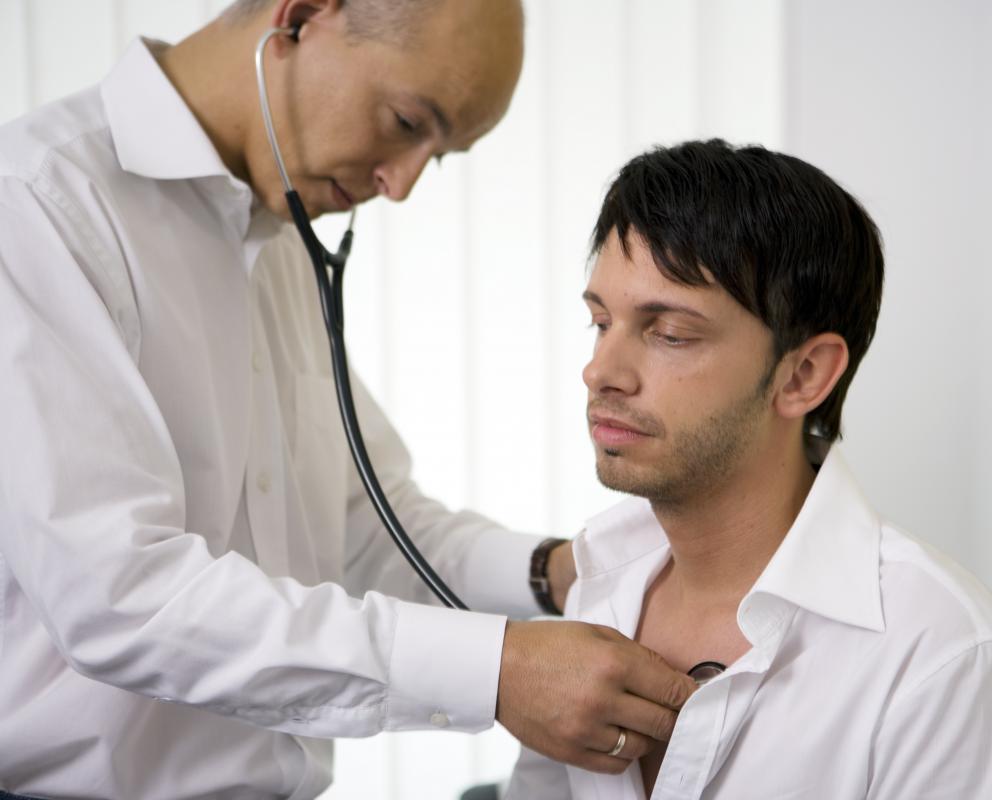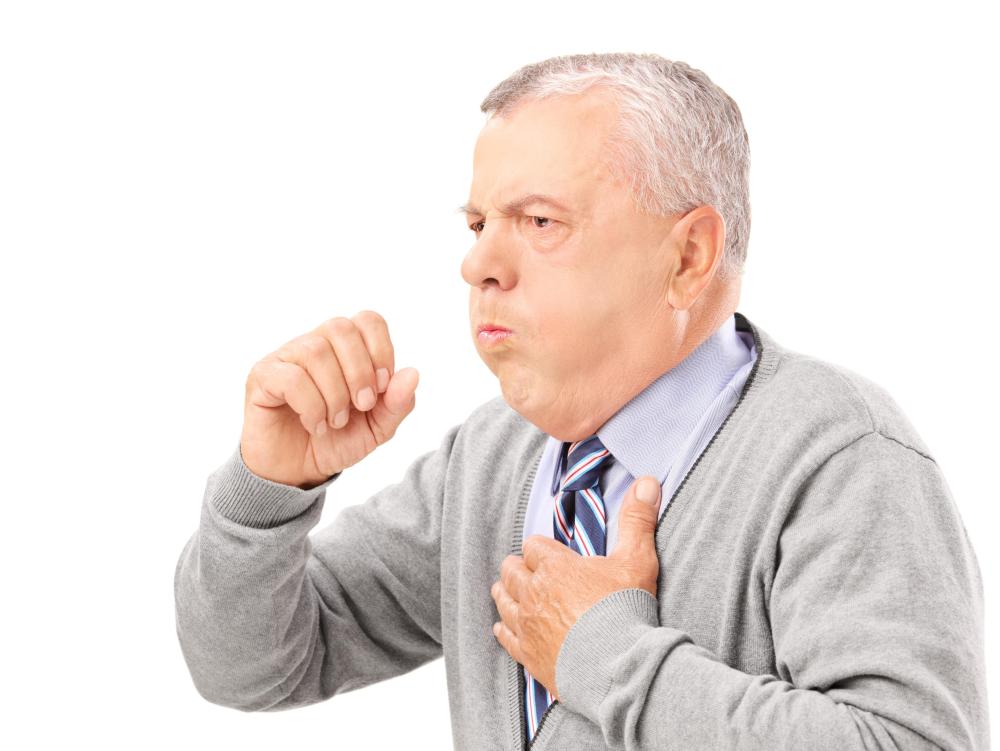At TheHealthBoard, we're committed to delivering accurate, trustworthy information. Our expert-authored content is rigorously fact-checked and sourced from credible authorities. Discover how we uphold the highest standards in providing you with reliable knowledge.
What Are the Causes of Palpitations and Coughing?
Palpitations are irregular beatings of the heart. Causes of palpitations may be inconsequential or serious, ranging from anxiety, fear, overexertion, caffeine or nicotine intake, emphysema, cancer, asthma or heart disease. Palpitations with coughing may indicate a more serious heart disorder, such as coronary heart disease or myocardial infarction. Patients with chronic heart palpitations may develop an accompanying cough due to fluid retention from insufficient blood flow. A medical professional should be consulted for all bouts of palpitations and coughing, especially if followed by chest pain, difficulty breathing or blood-tinged mucus.
When the heart experiences a palpitation, the heart either speeds up or slows down its regular rhythm. This can be a very unpleasant and disconcerting experience, but it does not necessarily indicate an emergency situation. The heart is affected by hormones and drugs, such as adrenaline before a difficult examination or caffeine in a large cup of morning coffee. Regular or severe palpitations affect the organ of the body, as the heart does not pump out blood as efficiently. Fluid therefore builds up in the organs.

Fluid buildup in the lungs triggers the automatic coughing response. Patients suffering from palpitations and coughing often describe the feelings as a "catch" in the heart that causes temporary breathlessness and is followed by uncontrollable coughing or wheezing. The coughing may be worse at night while the patient rests in a sleeping position. In some cases when fluid up in the lungs is especially severe, coughing may produce white, blood-tinged or pink phlegm. The patient may also experience swelling in the feet, legs or abdomen.

The exact causes of palpitations and coughing are difficult to determine without a full medical examination. Patients sensitive to highly caffeinated drinks may experience frightening symptoms and may have relief when the offending product is no longer consumed. Other patients may be experiencing the early signs of coronary heart disease or a heart attack. Chronic or severe coughing with palpitations should be evaluated as soon as possible to rule out or treat more serious disorders or diseases.

Medical professionals offer suggestions for managing palpitations and coughing. Patients should avoid smoking as well as caffeinated foods and drinks, learn to manage stressful situations, and practice deep breathing and relaxation techniques. Chronic sufferers need regular monitoring. Prescription drugs or dietary changes may relieve the symptoms. An active, healthy lifestyle with limited salt, fats and alcohol not only improve quality of life but may also reduce palpitations and coughing bouts.
AS FEATURED ON:
AS FEATURED ON:
















Discussion Comments
I've had chronic cough for over a year and started having heart palpitations with the coughing episodes.
My thyroid medication causes heart palpitation. It's one of the side effects. I'm coughing too, but that's because I caught a cold.
@literally-- I think you might have acid reflux, that's what I have.
When there is hyper-acidity in the stomach, the acid moves up and places pressure on the heart which might feel like hear palpitations or even a heart attack.
At the same time, this acid can move up into the throat and cause coughing.
Do you feel better after taking antacids? If so, that's probably what it is. Either way, you should see a doctor soon in case there is something more serious.
I experience heart palpitations and coughing a lot, but usually separately. The last couple of days however, I've been experiencing them together. I get a tingling sensation in my throat which causes me to cough. At the same time, I can feel my heart beating.
Is anyone else experiencing something like this?
Post your comments